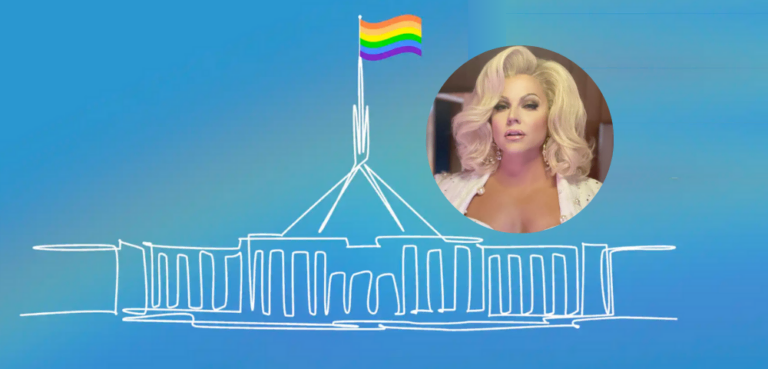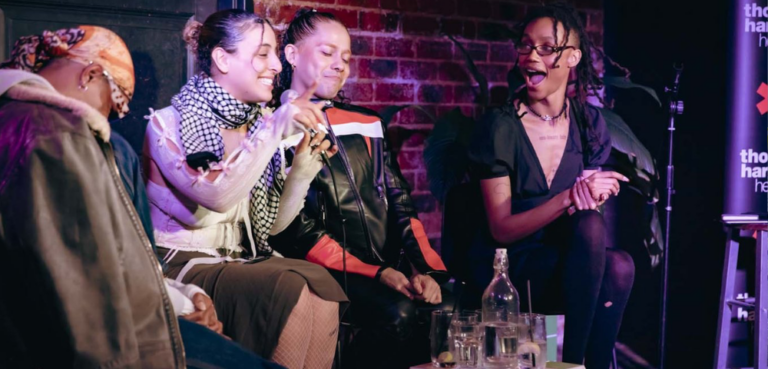
NSW’s first gay MP remembered as a “warrior” who fought homophobia

“WARRIOR”, “trailblazer” and “pioneer” are just some of the epithets that have been used to describe Paul O’Grady, NSW’s first openly-gay MP who died yesterday.
O’Grady (pictured above), who died in Sydney aged 54, sat in the Legislative Council from 1988 to 1996 frequently and colourfully clashing with Fred Nile, other politicians and the police who he accused of pursuing anti-gay agendas.
He came out in 1990 and, after his retirement from parliament, went public about being HIV positive.
Community leaders and politicians from both sides of Parliament have spoken to the Star Observer to praise a man who not only campaigned for gay and lesbian rights but also advocated for the legalisation of euthanasia and cannabis for medical purposes.
NSW Labor leader Luke Foley said O’Grady was a “tenacious and respected activist and leader with true Labor values” who took a “courageous step” in both coming out and commenting on his HIV status.
“Our parliaments should aspire to reflect the full diversity of people across our community – and Paul was a trailblazer simply by his presence,” Foley said.
“My hope is that the example of Paul – and all who have come after him – will inspire gay and lesbian Australians to be excited by the possibilities of the political process.”
In 1993, O’Grady revealed to the Star Observer that triple-0 operators had refused him assistance when he and his partner were assaulted by a gang in Sydney’s CBD.
“My life was not in danger but… any citizen has a right to report crime or potential crime and if the police are serious about combating street violence against gays and lesbians then they have to intervene before someone is bashed,” he said.
The lack of police action when it came to protecting the LGBTI community, and indeed allegations they were actively involved in violent incidents, led O’Grady to berate the force in parliament, going so far as to brand some officers as “thugs”.
He also frequently went into battle with Fred Nile and his late wife Elaine, both of whom had seats in the upper house and had sought to ban the Mardi Gras parade and stymie anti-vilification legislation.
“I have seen rallies and the way in which your heavies… have thumped and bruised and battered members of the gay and lesbian community,” O’Grady said in 1993.
“Let me assure you that ultimately this parliament will deal with this issue and ultimately this parliament will see you two individuals in the minority.”
Out gay upper house MP and opposition transport minister Penny Sharpe said O’Grady had no qualms when it came to “calling out issues,” such as policing.
“He was a real warrior for the things he cared passionately about (and a) formidable opponent in the Legislative Council on issues that were very unpopular at the time such as gay and lesbian law reform,” she said.
Sharpe said she first met O’Grady at a queer collaborations conference in 1992.
Despite being a student she, and others at the conference, were warmly received by O’Grady.
“He was always willing to engage with anyone who was an activist who wanted to get off their bum and do something,” she said.
NSW Gay and Lesbian Rights Lobby co-convenor Justin Koonin said O’Grady would be deeply missed: “Paul O’Grady was a pioneer, and a true example of living a public life with openness and integrity.”
Legislative Council president and Liberal MP Don Harwin, who came out himself last year, said O’Grady made an important contribution to the upper house during his eight years as an MP.
“Paul was an inspirational figure to a generation of activists who shared the causes he believed in,” he said.
Harwin added he would be remembered for honesty, frankness and passion: “His courage in speaking out about his sexuality and HIV status were of immense benefit to our community.”
Labour heavyweights Penny Wong and Anthony Albanese also paid tribute to O’Grady.










A true gay activist and MP hero died today. We LGBTI people must remember him and his work reforming the laws!
RIP Paul!